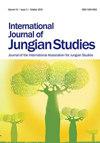原型起源
Q4 Psychology
引用次数: 2
摘要
原型是否在生物学上或文化上传播的问题被错误地提出,阻碍了荣格关于原型理论的思想进步。对心理发展的思考表明,严格来说,人类心理的某些内容既不是生物学上的,也不是文化上的。举例说明,问题变成了,这个事实如何影响原型理论?本文深入探讨了这个问题。本文章由计算机程序翻译,如有差异,请以英文原文为准。
Archetypal Origins
The question of whether or not archetypes are transmitted biologically or culturally is wrongly posed and has hampered progress in Jungian thought regarding archetype theory. Considerations regarding psychological development show that some contents of the human psyche are, strictly speaking, neither biologically nor culturally derived. Examples are given, and the question becomes, How does this fact affect archetype theory? The present essay examines this question in depth.
求助全文
通过发布文献求助,成功后即可免费获取论文全文。
去求助
来源期刊

International Journal of Jungian Studies
Psychology-Applied Psychology
CiteScore
1.10
自引率
0.00%
发文量
10
 求助内容:
求助内容: 应助结果提醒方式:
应助结果提醒方式:


